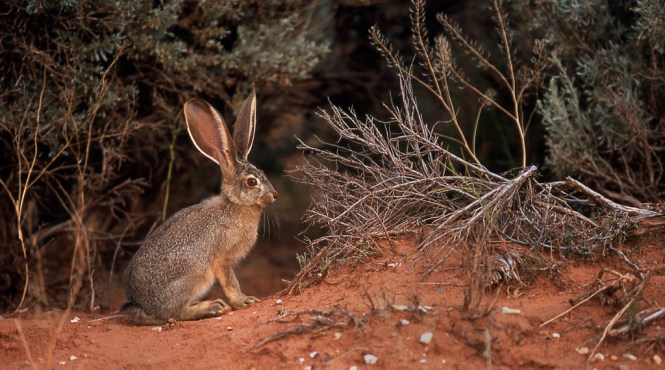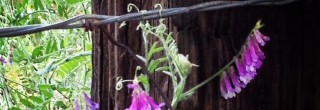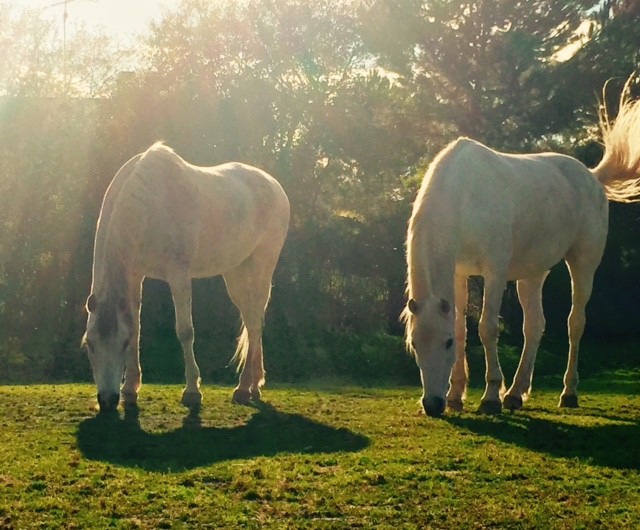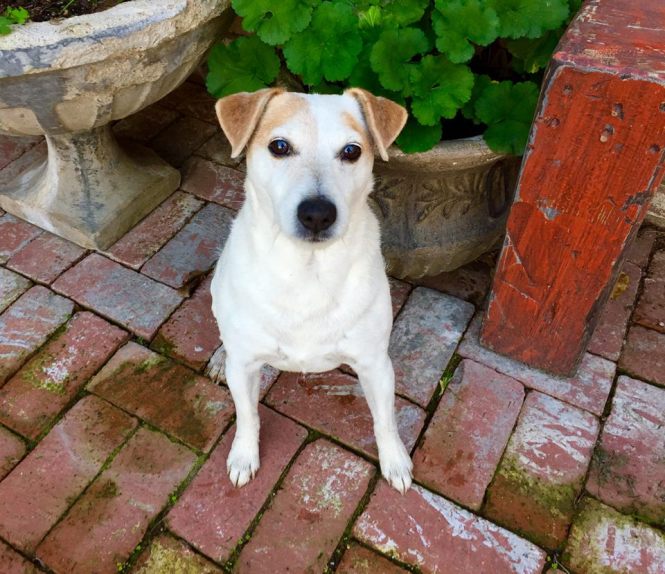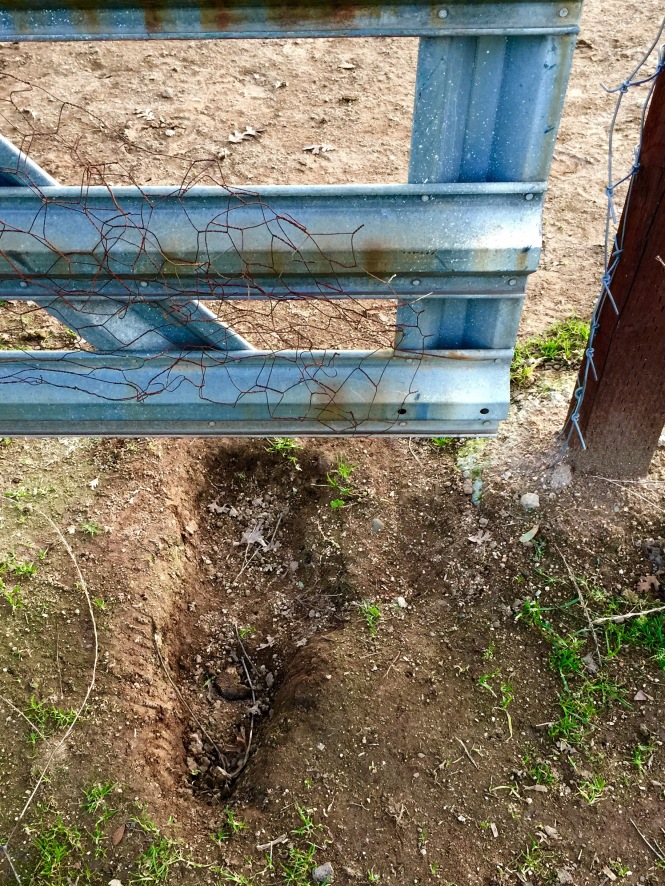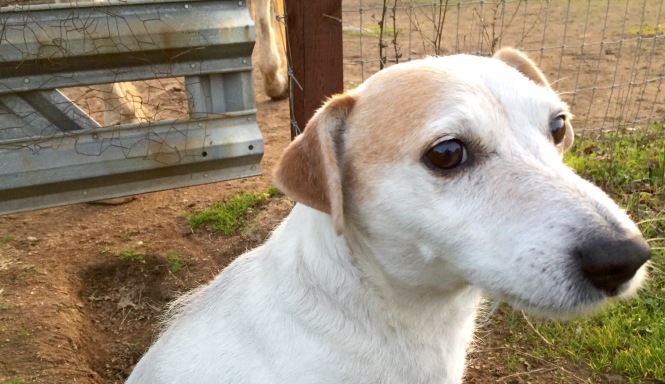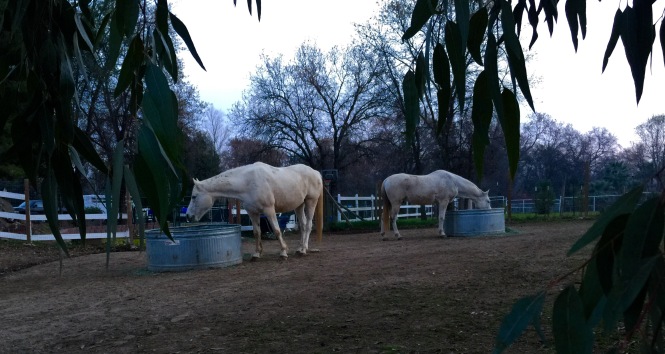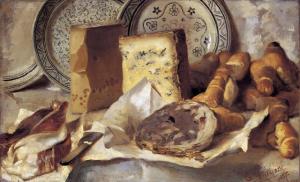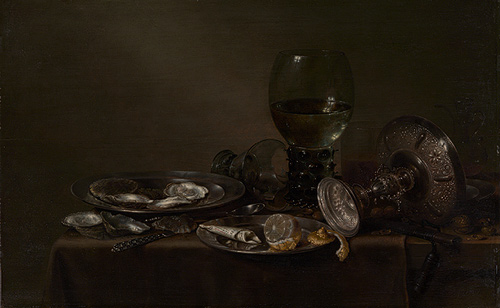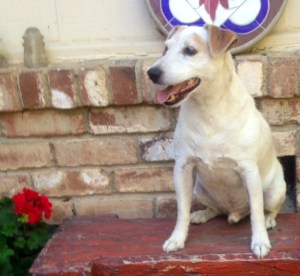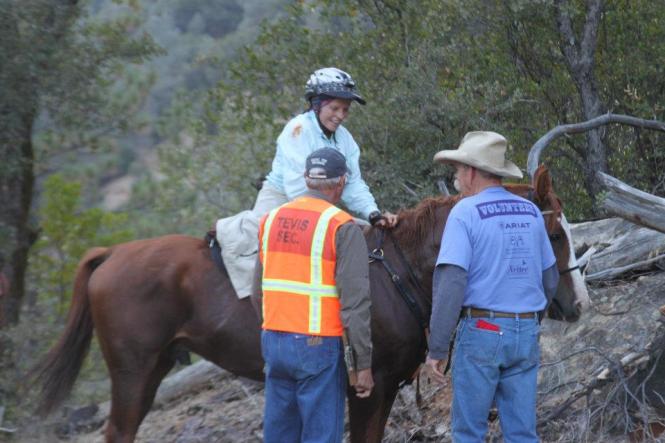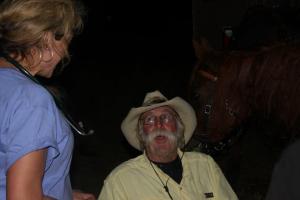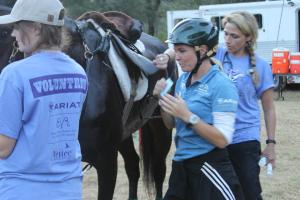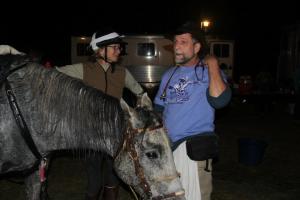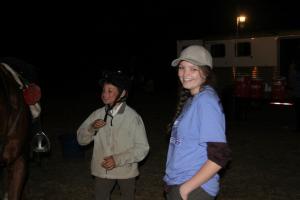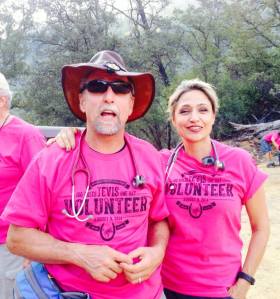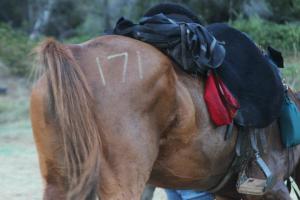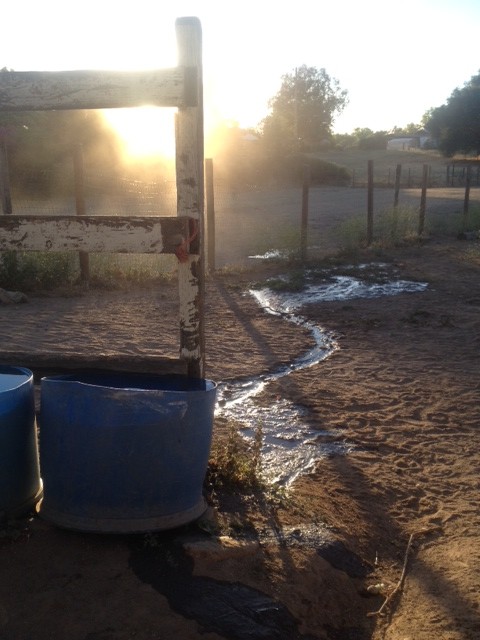
Are You Gonna Cowboy Up, or Lie There and Bleed?
By Elizabeth Speth
When Bug Shooley flew from his horse into a fence post and broke his neck, he died instantly.
The old, weathered ranch cook pierced July’s devil breath as he soared. His unscheduled dismount landed him squarely in death’s dusty clutch, at the base of a disintegrating wooden monument.
A filthy pile of worn cowboy clothes relinquished his spirit without a fight, sending it to wherever Bug was expected, based on his crusty lifetime of thoughts and deeds. Like the shadows that sometime skim rocks and bunched sage of an evening, startling jackrabbits and wild horses, he was there. And then he was not.
Shooley’s boss was a cattle rancher called Dutch Avery. Not quite 50, Dutch had spent a lifetime chasing cows across flat landscapes, into the kind of horizons that snap shut against regular folks.
Dutch watched a rattlesnake writhe out from under Bug’s bucking horse. It wound itself into a scandalized bunch of whispering brown grass and disappeared. Dutch looked at the tangle of arms and legs on the ground, and did not doubt that Bug was dead.
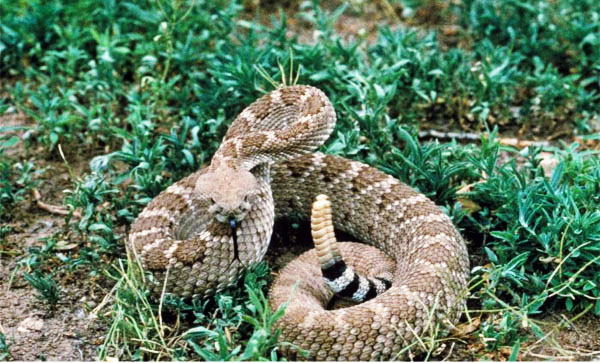
His father had hired Bug to cook beans and ride fences the year Dutch was born. Growing up, Dutch witnessed first hand most of the healed injuries that barely held Bug together. Broken pelvis, shattered hip, two finger amputations. A long history of bone disagreements in the ribs and extremities.
Slowly, numbly, it came to Dutch that this was the final offense to Bug’s beaten-up old body. The one that undid everything.
A large group was riding up now behind him. A few were cowboys on his payroll, but most were corporate clients on a ‘team-building’ day ride. This was a new thing, ferrying city folks around the ranch on horseback rides, and Dutch had hoped to earn some money from it. He was pretty sure Bug’s airplane imitation had put an end to that. Bug often admitted to ‘bad timing’ in the kitchen — it was his attempt to explain away decades of undercooked meat and scorched pancakes. He had been every bit as inopportune about death, poor bastard.
Out of habit, Dutch’s swing down from his creaky saddle leather was deliberate. The fact of it, he thought — the sudden, violent demise of his old friend — was not nearly as shocking as seeing Bug bucked off,
Because, say what you wanted about his leaden pies, that gnarled old cook was a born good-luck charm when it came to breaking colts, and it was a rare horse that convinced Bug to get off before he was ready. How could this man’s lifeless hands, so skilled with a rope and a rein, be so permanently stilled? Just last night those eight knotted fingers had assembled a surprisingly passable dinner of green chili peppers stuffed with sausage, corn, pine nuts and cheese. The cowboys had devoured most of it with astonished expressions on their faces. Dutch had been looking forward to finishing the rest for supper tonight. Bug’s leftovers had survived him.
And what about tonight? Dinner was due on the table for a passel of paying strangers in a few hours. Dutch was ashamed of this thought as soon as it came to him.
He bowed his head and exhaled. Heavily. Though stocky and tough, he was tired. His was a deep exhaustion of the bone, and every day of his age showed in the fine, kind lines of his face. For he was, to his dismay, far from a heartless man. Unexpectedly soft, despite careless handling from infancy, he harbored a lifelong conviction that he was unequal to the harsh truths of his life.
It showed in his pale-blue eyes, his wheat-colored hair faded by sun. Broad of shoulder and short of leg, his arms and hands were weathered and powerful. Years of watching weather, hay crops and cattle had not changed the dreamy expression allotted to him at birth. He was, in fact, preternaturally kind. He went out of his way to avoid arguments, whether with bears, coyotes, ranch hands or women. He had fallen in love exactly once in the nearly five decades of his life, with devastating consequences for all involved.
A rancher’s life, vulnerable and uncradled as it is in nature’s wide open hands, was a temperamental trial for him. Death alarmed him, although he understood the efficiency of it. He accepted the logic of predators, even when their impatience was cruel. Just that morning, he’d stumbled on and shot a sick cow, lowing piteously on the ground, flesh already partially eaten by greedy coyotes and flies before the original owner was done with it. He had thought that would be the worst part of his day.
He wasn’t naive. He knew mortality’s grip sometimes fumbled, closing when it shouldn’t. Too often, in sunbaked pastures or flood ravaged creeks, he found evidence of its carelessness with the living, especially new life.
Some years he’d lost a full third of his calves to illness and accidents. His pastures had absorbed hundreds of tiny skeletons over the decades, like thirsty, gritty sponges. One of his earliest memories was watching a waterlogged calf sink in brown sludge while gray skies emptied on its frantic head during a hellish storm. Dutch’s father had tried grimly to save it, but the animal succumbed quickly to confusion, fatigue or trampling by the rest of the herd. He couldn’t remember which.
There were larger deaths too — like the partial demise of his ranch, every day, as it was pulled in pieces under a bloody wash of red ink. He couldn’t bear to look at the numbers anymore, but he figured only about a quarter of it actually belonged to him by now, and the bank’s possession of the rest distracted him from the business of producing beef, which was a job to which he’d never felt suited. He thought it a forsaken existence, haunted by his own fiscal failure. The sight of barbed wire, where it joins together periodically like two hands wrapped tightly, holding on for dear life, was a sorrowful reminder that he was utterly alone in his responsibilities. He had no other hand to grasp.
It was debt that forced the exposure of the private, naked curves of his ranch. Debt had him out today, pulling a string of strangers like a loose thread through the fabric of trees and grasses that covered her, and he felt a vital cloak was about to come apart and fall away. It was an exchange of something precious for money, for survival, and he was uneasy about it. And now Bug was dead.
Unrelenting heat pressed him to the ground under a sky that was pale as a blue-dyed Easter egg. A woman kicked her horse hard and rode up beside him. She was the highest-ranking executive in her corporate retreat group. Her posture made it clear she intended to get to the bottom of why a scraggly knot of cowboys scratched their heads and stared at the ground when they were on her dime.
“Ma’am, you may not want to–” Dutch began, but it was too late. She saw Bug and commenced a low moan as her horse pricked a puzzled ear in her direction.
The rest of her group, eight in all, rode up behind, registered the situation, and manifested various sounds of distress and disbelief.
Dutch tried to shelter the sight of his lifelong friend from a frantic cluster of strangers. He apologized under his breath to his old friend, attempting to sort out Bug’s limbs and lay them straight.
Death did not prompt Dutch’s apology. It was the lack of privacy, the indignity of these folks misunderstanding the context of the end of Bug’s life.
Because, like all cowboys, some small part of Bug’s mind had started tracking his expiration way back in boyhood, right about the time he slung a skinny leg over that first bucking colt. Had Bug’s death been indicative of his life in any way, he would have died chasing cows, or introducing a horse to saddle and boot. Or quietly in his humble bed back at the ranch, hat and pocket knife neatly on the table beside him, smelling faintly of the slug of bourbon he always belted before retiring. His ‘tiddlywink’, he called it, or, alternatively, his ‘evening constitutional’.
The rest of the day would always be a blur to Dutch. There were refunds for the paying guests, and dinner in town on him — all of it money he couldn’t afford. His guests had most of them made a point of saying how traumatized they were. One or two also complained about the wi-fi availability (there was none). Damned if they wouldn’t have a good story to embellish into old age, Dutch thought to himself but didn’t say.
The body was examined and released by the local coroner, who fretted about the fact that Dutch had driven it into town in the back of his tomato-colored Ford pickup.
Twenty-four hours later Dutch stood in the town cemetery, over a small grave scraped out of heat-hardened earth. His motley crew of cowboys surrounded him, along with a girl from the Flying U Bar who’d known Bug as a reasonably happy man when drunk. Bug had no family present. Whether because they were scattered to the wind or would not own him was unclear. But Dutch made sure the man’s boots went into his casket, and his spurs, and an old pistol found stashed under a mattress.
“Bug was a an all-right sort, may he rest in peace,” said Dutch to all assembled. “I’ve known him all my life. He’d have stood behind any us right up to hell’s back door.”
He cleared his throat and examined his hat brim, spun it a few times while getting his thoughts together. “I would like to give thanks, however, that we are freed from the tyranny of his biscuits. Those sons of guns were always rock-hard. But they stayed in your gut for a good, solid day or two, and Bug always said that was a virtue in a biscuit. He was a tough man, cut from an old cloth. Like my father. Men like these are not diminished by the challenges of our lives here. God bless.”
The death certificate was handed to Dutch at some point, for lack of next of kin, but Dutch never glanced at it. He knew the cause of death: Sitting shallow in the saddle. It could happen to anyone, and that was a God-damned true fact.
Afterward, the men of Quarrelsome creek returned to their duties, heavy with the knowledge that they too were dying. All their decades of riding for brands, wrestling blood and chewing dust, were fading away. Their hardened sensibilities nodded an acknowledgement to God for dispatching a cowboy, and they headed back to the floundering ranch.
Dutch followed more slowly, for he still had one errand in town. That was to press an envelope into the hand of the local newspaperman
“There’s a twenty in there for the ad,” he said. “I don’t know how much you charge.”
The other man shrugged, apparently not knowing either.
“I’m not sure how to word it,” Dutch confessed. “Fix it up how you need to. I need a bronc buster and a cook, preferably in the form of one person, if they even make them like that any more. Bug’s obituary is in there. It’s short. Most of what we knew about him ought not be printed. Take your time billing me if that’s not enough money. You know where to find me.”
Then Dutch placed his hat, a sweat-stained, gray felt Stetson, inherited from his father, firmly upon his large head, and he followed the footprints and then the tire tracks of his men back to the ranch, and went back to work.
